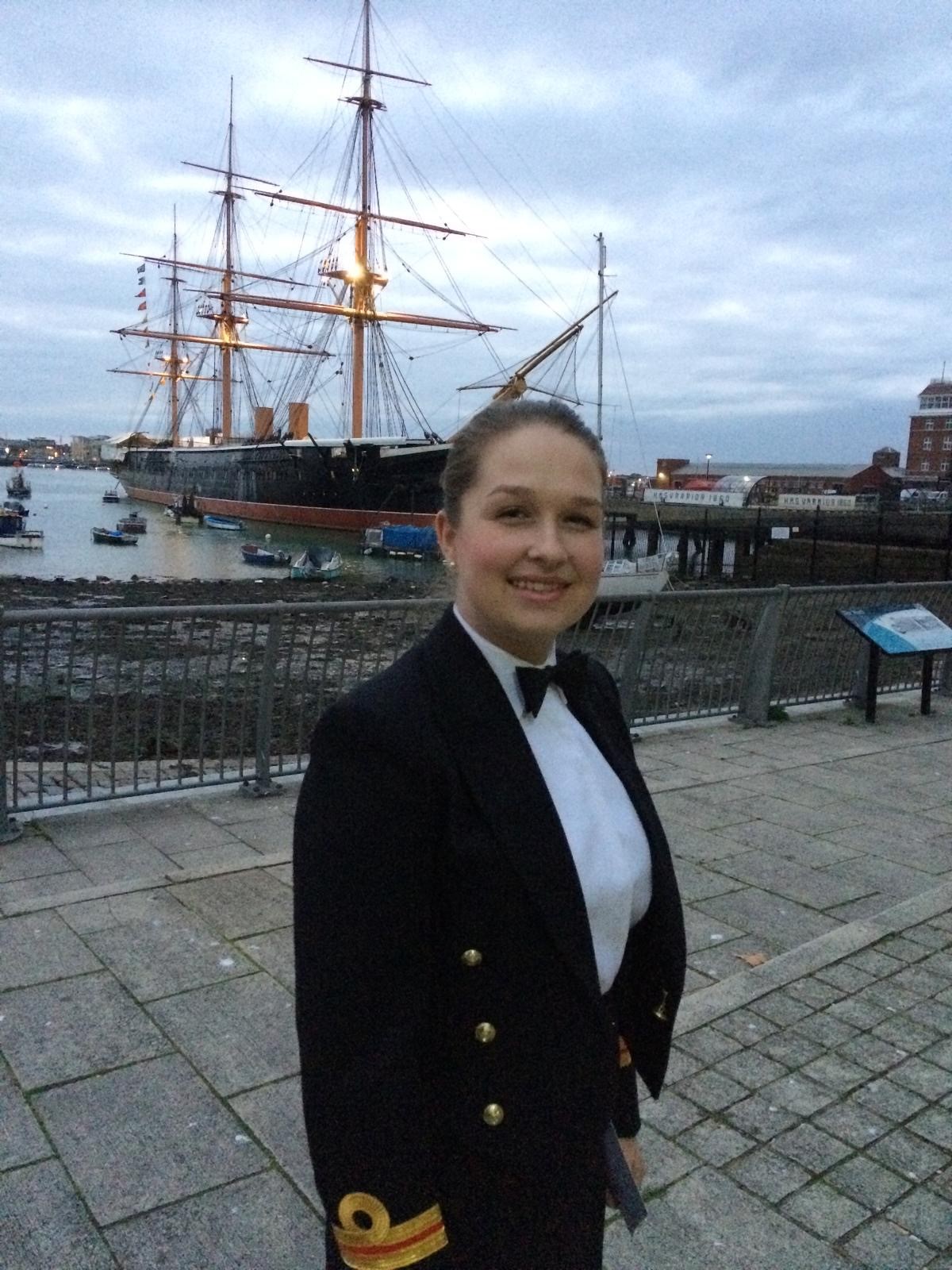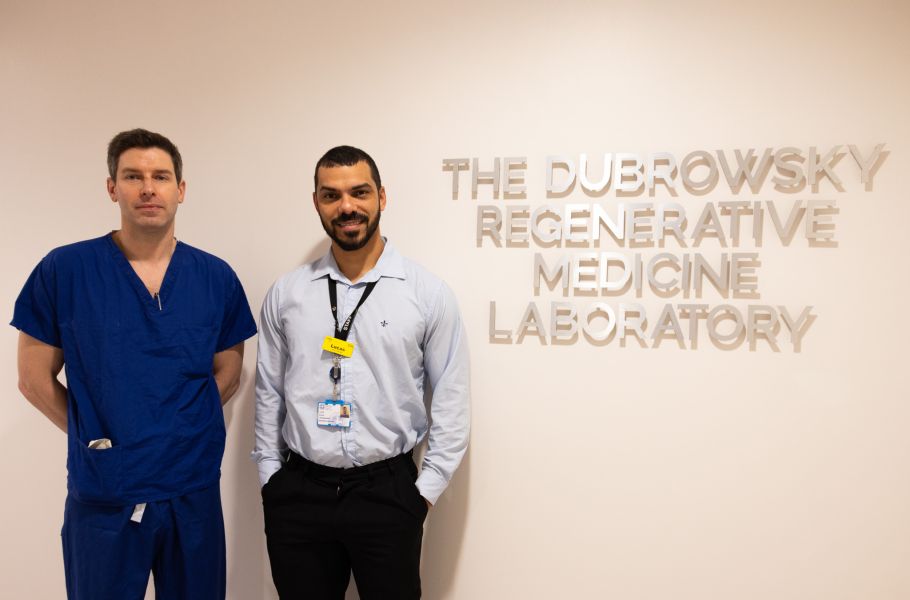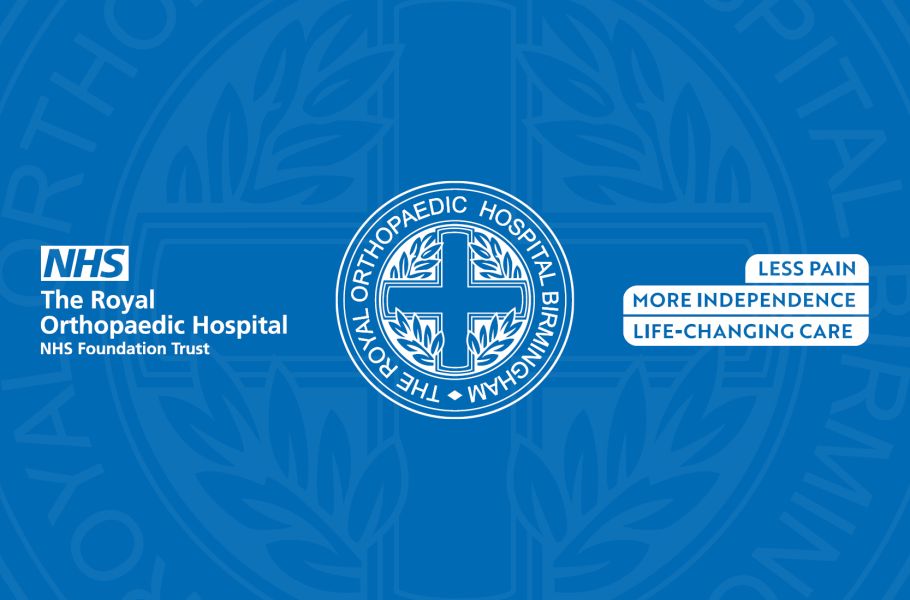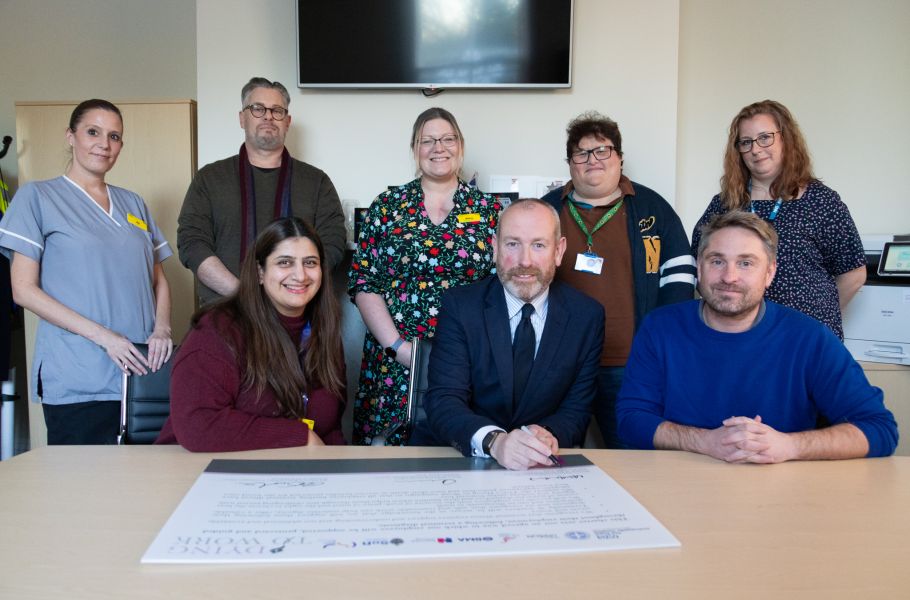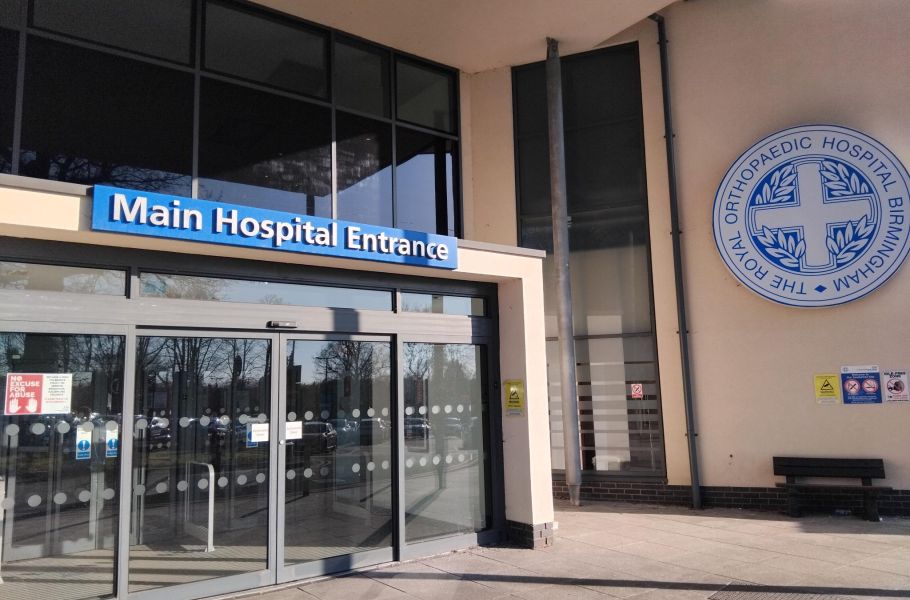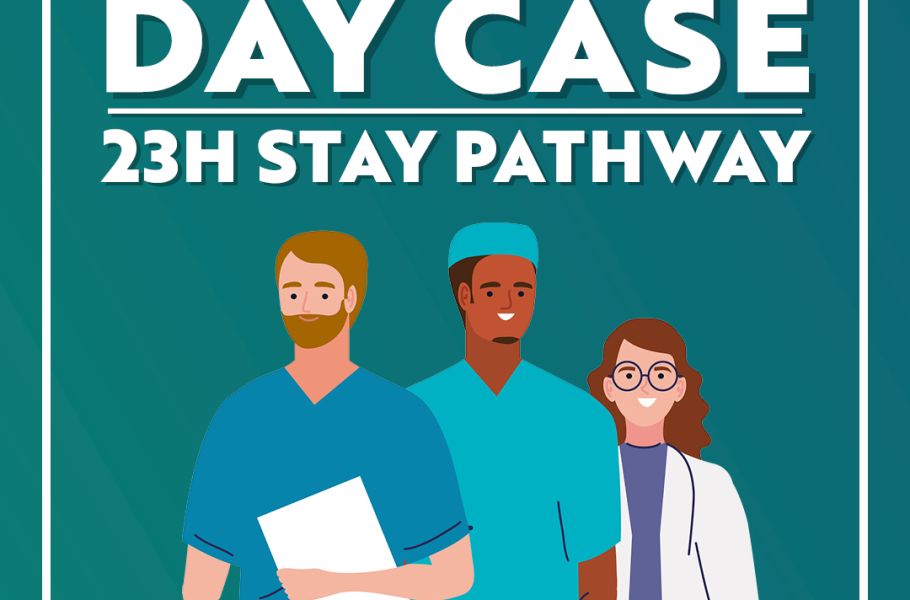ROH Staff Stories - Meet Natalie
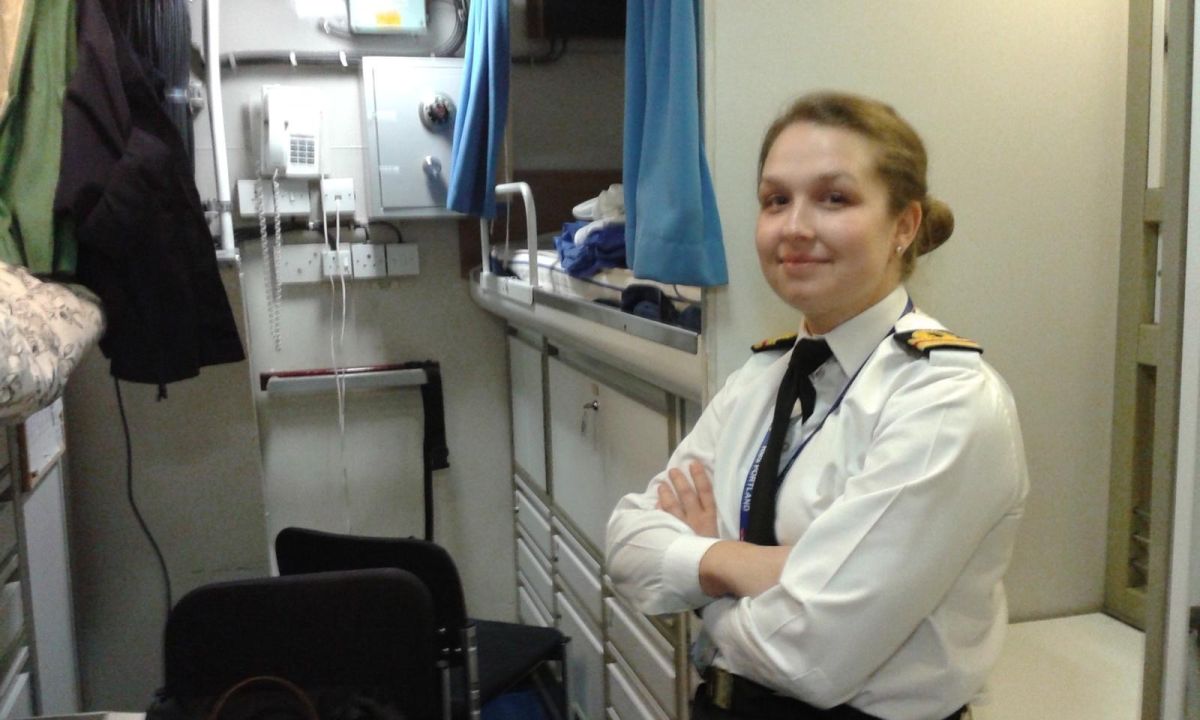
Natalie Green is an ST7 Trauma and Orthopaedics Registrar currently completing a six-month Oncology rotation at the Royal Orthopaedic Hospital. Having served in the Royal Navy from 2009-2019, Natalie is one of several veterans working here at ROH. As part of Armed Forces Week, Natalie shares her story with us.
I joined the Royal Navy while a Medical Student in 2009 through a medical cadetship. This pathway is open to anyone who has secured a place at Medical School. I completed Medical School in Birmingham and then my two Foundation Years at the Queen Elizabeth hospital and Sandwell Hospital. I come from a military family with several generations in the Royal Navy and the Royal Marines, so I could really see from an early age how a career in the military can be fulfilling whilst still combining my ambition to be a doctor.
Once I finished my Foundation Training, I completed 6 months of naval training before three years of active service. During this time I served on three ships – HMS Protector, HMS Portland, RFA Lyme Bay – and I’m lucky to have been all over the world. Our longest trip was from Plymouth to Tasmania on a hydrographic survey ship, stopping at Diego Garcia along the way and spending enough time to swim with the sea turtles in the Indian Ocean. Our next trip served on operations in the Gulf, followed by a journey down the East Coast of Africa with a 6 week cool down period in Cape Town, giving us plenty of chances for climbing Table Mountain and safari expeditions.
You’re looking at 6 months deployment each time, and you’re the sole doctor on board – it’s a big undertaking, but incredibly rewarding. You could have anywhere from 75 to 250 people people on each ship and you’re dealing with a wide range of conditions, from new diagnoses of diabetes through to broken bones.
But it’s this environment that’s given me so many skills that are beneficial to a career in orthopaedics. It’s given me more leadership and management experience that I wouldn’t necessarily have gained so earlier on in my career. On board the ship I wasn’t just the doctor - I was the entertainments officer and press release officer, which in my roles meant organising anything from team sports on the flight deck through to leading ship events for local VIPs or media in our visiting ports. It really tests your range of skills beyond the clinical, but I think that experience has made me a better doctor.
And it’s made me much more self-sufficient and confident in managing patients on my own. While on board you don’t have a wealth of tests available, you have to use a good history and clinical examination to work out what to do, rather than relying on lots of investigations and equipment. I think this has made me more comfortable with the uncomfortable. It’s ok to sometimes sit on things and see what happens, whilst still knowing when quicker action is needed.
On a Royal Naval ship there’s a lot more decision making that involves other team members on board, and navigating stressful situations. You have to be able to factor in lots of things at once, and think out of the box. And it showed me how important really knowing your team is – how each individual reacts in different situations and who you can rely on in a time of need, and how camaraderie is a contributor to better collaboration, conflict resolution and improved morale. As I’ve gone through my surgical training I’ve found this camaraderie and collaboration applies too.
I left the military in 2019 to begin my Registrar training in Birmingham. I remember coming to the ROH when I was a medical student and found the experience really engaging, especially the examination practice Friday afternoon sessions with our professional patient actors, so it’s been wonderful coming back here through out my surgical training.
During my foundation training I had two orthopaedic jobs at the QE and Sandwell General Hospitals. I found the experience in orthopaedics was really involved, really engaging, and more hands on. It was a fun environment, you were surrounded by enthusiastic people, and I liked how in trauma & orthopaedics the surgical solution always felt pretty clear and constructive. There’s so much more to orthopaedics than that, but for someone who likes problem solving and fixing things, orthopaedics was a natural fit.
There are some perceived challenges in taking a military pathway for a medical career as it does put you 3 years behind. But I didn’t find this frustrating, I think it brought more to my experiences, made my approach to the rest of my training more informed and has given me skills that I might not have gained if I hadn’t chosen this path. If I had to do this all over again, I wouldn’t do it differently.
You often hear that one of the things Veterans miss about military life is the camaraderie. Working in the Royal Navy where you’re away from friends and family for months at a time, in a confined space, you develop a connection with those you’re on board with. But in surgery I’ve found this camaraderie does exist, albeit in a different way, working in close quarters with the same group of people each delivering a specific role. I think this has helped when I left the Navy, as that aspect of my working life carried on. I also had a really supportive partner and family network around me, both while I was deployed and when I left the military and returned to civilian life.
I did find that as a clinician the transition to civilian life was seamless, perhaps that’s down to the structure of surgical training. As a Registrar you’re moving around different hospitals every few months, which is not dissimilar to deployment, and you have a clear plan and milestones as you work towards your final examinations.
The NHS and the military have a really important relationship, and there’s so much that the NHS brings to the military as does the military bring to the NHS. When you’re the sole doctor on a ship, it’s essential you have contacts back home for advice or to reach out when you need to get a patient of the ship and to further help. Your formative years training at NHS hospitals helps with that, knowing who you can collaborate with and lean on for support is hugely helpful. I also found that NHS Trusts are open to taking military trainees and the support is there for those that need it, and the grounding you get during your Foundation Training before you go into basic training you just can’t get elsewhere.
Veterans and those still serving also bring strengths to the NHS – when you have a patient who is in the military or ex-military, those patients can benefit from a clinician who has that experience, who can know their expectations and concerns and so overall you’re better placed to help them. Equally, this background supports in identifying areas for improvement across the NHS. For example, managing the constant movement of military staff and their families and ensuring they’re not left out of services or pushed to the back of queues due to the need to move regularly. This is an area the NHS could still improve, but its this insight that supports continuous improvement that benefits all users of the NHS that wouldn’t be possible if the NHS didn’t employ staff from a military background.
I’m really proud to be a Veteran and break the mould of what it means to be a Veteran, but Veterans can be women, and younger too! And I’m so proud to be on this journey towards becoming an Orthopaedic Consultant. It’s so important to see people who look like you in roles you aspire to, both in the military and in the NHS. For those young women at the beginning of their medical careers considering their speciality, I can’t recommend enough keeping an open mind. If you are enthusiastic, keen and a hard-worker, a career in surgery and/or the military isn’t off limits - it’s all achievable.
